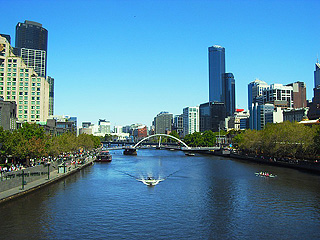Bosnian Translation For Design Files

Translate your brochures to Bosnian or any other language.
Melbourne Translation Services has professional Bosnian translators and expert typesetters who are able to work with your working design files, to provide translation from English to Bosnian or from Bosnian to English.
Besides Adobe InDesign files, we accept Illustrator, Photoshop, Powerpoint or any other popular working file format.
For larger files, you may send us a download link to review the files for a free quote.
Bosnian Translation and Typesetting
Where a program cannot directly take the fonts of a particular language, typesetting is normally completed in Illustrator and placed back in the original design file as curved EPS files. We have considerable experience in larger multi-language typesetting projects where a consistent design and feel must be produced across several languages. This involves the coordination of Asian and European font styles, point sizes, leading, etc.
Melbourne Translation Services provides professional brochure translation and typesetting services wherever you are based in Australia or overseas. Contact us for a free quote.
- There are no hidden charges for fast Bosnian translations!
- Many happy repeat customers
- We provide discounts for repeat customers or large orders
- Full-time Bosnian translators experienced in translating all kinds of documents
- Personal, friendly service
- Sydney
- Melbourne
- Brisbane
- Perth
- Canberra
- Darwin
- Hobart
- Adelaide
- Wollongong
- Newcastle
- Cairns
More About The Bosnian Language
The modern Bosnian language uses both Cyrillic and Latin alphabet. However, scripts other than Latin were used much earlier, most notably the indigenous Bosnian Cyrillic called Bosančica (literally "Bosnian script") and dates back to the late 10th and early 11th centuries AD. The Humac tablet, one of the oldest Bosnian literacy monuments, is written in this script. The script is of the greatest significance to Bosnian history and linguistics, since it is the one script that is purely native to Bosnia and Herzegovina and is linked to the Bosnian medieval monarchy and the medieval Bosnian religion where it was used abundantly. It can also be found in many royal state documents and as well on old stećaks. The substantial influence of bosančica on medieval Bosnia has unfortunately made it a target of controversial debates and propaganda throughout the history which has led to the tendency of some Croat and Serb philologists and paleographers to deny the exclusivity of association of the script with medieval Bosnian state, and associate it to Croatian and Serbian cultural provenience, despite its geographical origin and the historical prevalence of usage. Other scripts used include: begovica (used by Bosniak nobility) and arebica, or Arabic script adjusted to write Slavic speech, also chiefly used by Bosniak nobility during the Ottoman era.
The irony of the Bosnian language is that its speakers are, on the level of colloquial idiom, more linguistically homogeneous than either Serbs or Croats but they failed, for the historical reasons outlined below, to standardize their language in the crucial 19th century. The first Bosnian dictionary, a rhymed Bosnian–Turkish glossary authored by Muhamed Hevaji Uskufi, was composed in 1631. But unlike e.g. Croatian dictionaries, which were written and published regularly, Uskufi's work remained an isolated foray. At least two factors were decisive:
- The Bosniak elite wrote almost exclusively in foreign (Turkish, Arabic, Persian) languages. Vernacular literature, written in modified Arabic script, was thin and sparse.
- The Bosniaks' national emancipation lagged behind that of the Serbs and Croats, and since denominational rather than cultural or linguistic issues played the pivotal role, a Bosnian language project didn't arouse much interest or support.
Serbia includes the Bosnian language as an elective subject in primary schools. Montenegro officially recognizes the Bosnian language, as its 2007 Constitution specifically states that while Montenegrin is the "official language," also "in official use are Serbian, Bosnian, Albanian and Croatian languages."

Bosnian Translator
Upload your project files here for translationOur Valued Clients

